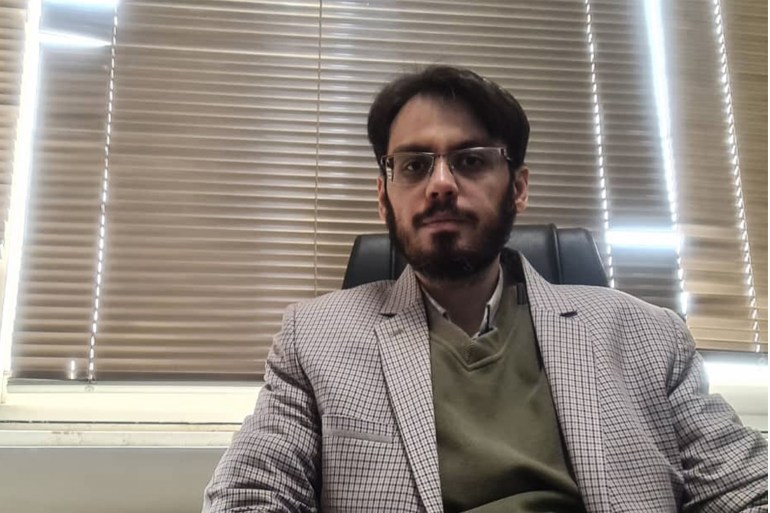With the growing European concern about the possibility of stopping the flow of Russian gas due to the worsening of the Ukrainian crisis, there has been talk again in Iran about the possibility of exporting energy to Western countries and reviving projects planned since the previous Pahlavi regime.
This is not the first time that the idea of exporting gas to Europe has come to Iranian circles, but observers in Tehran see the exacerbation of the crisis between Russia and the Western world as an opportunity to restore water to its courses, and to put Iranian-European relations on the right track, especially since Tehran is engaged in vigorous negotiations with Iran. The European side is part of the efforts to revive the nuclear agreement.
After the European feeling that the security of its energy has become hostage to any dispute with Russia, and the need to think of suitable alternatives, there are those in Iran who believe that the country’s possession of the second largest gas reserves in the world after Russia qualifies it to replace the Russian giant in supplying the allies of the recent past with quantities of gas Through pipelines that pass through Turkey and the Black Sea countries to Romania, or through Iraq, Syria and the Mediterranean, and from there to Europe.
intersection of interests
Following the signing of the nuclear agreement between Iran and the Six-Party Group in 2015, negotiations began between Tehran and the Europeans, and made remarkable progress, but they stopped under the influence of Russia's influence on the Iranian side, according to the Iranian economist Bahman Arman.
In an interview with Al-Jazeera Net, Arman called on his country's government to work to meet the European demand for gas at the present time in light of the continuation of the nuclear negotiations in Vienna, explaining that the Russian interest requires the continuation of sanctions against Iran and depriving it of exporting its gas to Europe.
Pointing to the lack of trust between the Western world and Russia due to the continuing Russian escalation at the Ukrainian border, Arman said that Iran is the only country capable of compensating Europe for Russian gas.
He stressed that returning the European giants, especially the French "Total", to implement their commitments in Iran - as one of the conditions for reviving the nuclear agreement in the Vienna negotiations - would complete the project to develop the 11th phase of the Pars gas field in southern Iran, and transfer energy to Europe.
Saifullah believes that it is better in Iran to work to meet the regional demand for gas (Al-Jazeera)
need for technology
Arman pointed out that "the Rafsanjani and Khatami governments had taken giant steps to implement the projects that were planned during the Pahlavi regime, including the project to extend gas pipelines from the Asalouyeh region in southern Iran to Europe through Turkish territory," stressing that the project has been suspended since the government of the Iranian president. The former Mahmoud Ahmadinejad, although he is only 400 km away.
He pointed out that Iran had signed contracts with Western companies after the signing of the nuclear agreement, explaining that some of these giant projects urgently need unique technology that only some Western countries possess, such as Italy, the United States and France.
Arman concluded that supplying Iranian gas to European countries would generate more money for Tehran than Russia would earn through the Nord Stream 2 gas pipeline, and expected the completion of the development project for the 11th phase of the Pars gas field within less than 3 years. In the event that France's Total returns to Iran, it will provide a large share of what European countries need from liquefied gas.
regional demand
Despite the many voices calling for working to activate the "Friendship Line" pipeline agreement signed with Iraq and Syria in 2011 to deliver Iranian natural gas to Europe via the Mediterranean, a segment of economists see the chances of success of these projects being very slim given the economic and geopolitical challenges facing them.
The Editor-in-Chief of Economic Affairs at the Iranian Mehr Agency, Mohammad Hossein Seif Allahi, described the implementation of gas pipeline projects for thousands of kilometers as a waste of time and capital, stressing that the Iranian surplus of gas is not much to transfer to Europe.
In his speech to Al Jazeera Net, Saif Allah indicated that the amount of gas exports to both Iraq and Turkey decreased during the winter due to the rise in domestic consumption, stressing that in light of the regional demand for Iranian gas - such as Kuwait, the Sultanate of Oman and Pakistan - the export of gas to Europe will not constitute A priority for Iran at the moment.
He downplayed the importance of what is said about Iran providing alternative gas to Europe, stressing that Russia supplies about 40% of the European need through several pipelines, while Iran has not completed a single pipeline yet, and it is better for it to work on completing the gas pipeline project to Pakistan, which has stopped Years ago, despite the huge money spent on it.
Officially, Ahmed Asadzadeh, assistant for international and trade affairs in the Iranian Ministry of Oil, said that the current Iranian government is focusing on strengthening its trade relations with neighboring countries, and that cooperation with European countries is a second priority.
In a press statement, Assadzadeh announced Tehran's readiness to negotiate with the European side to meet its gas needs if requested.

